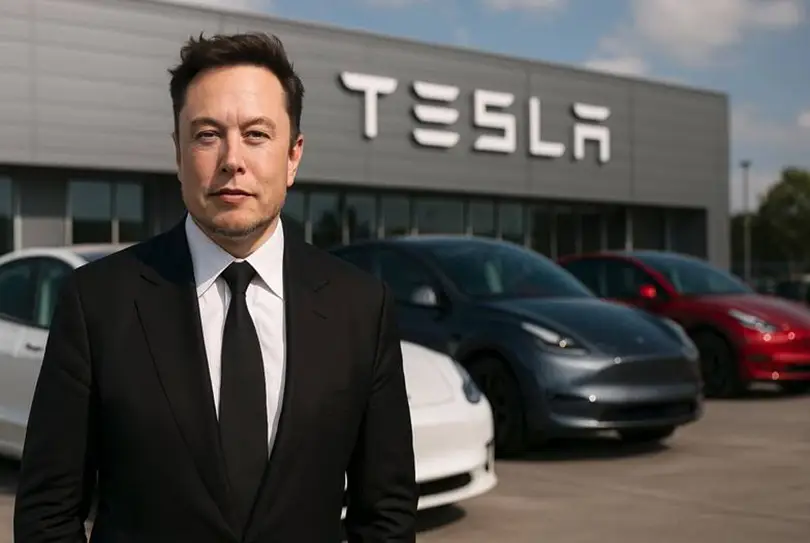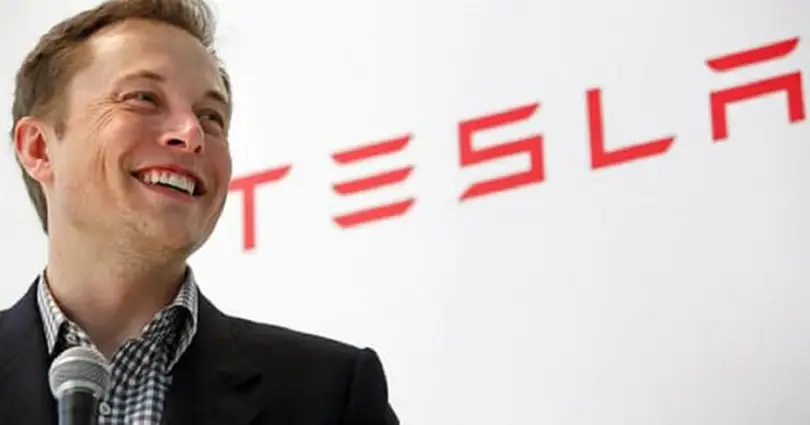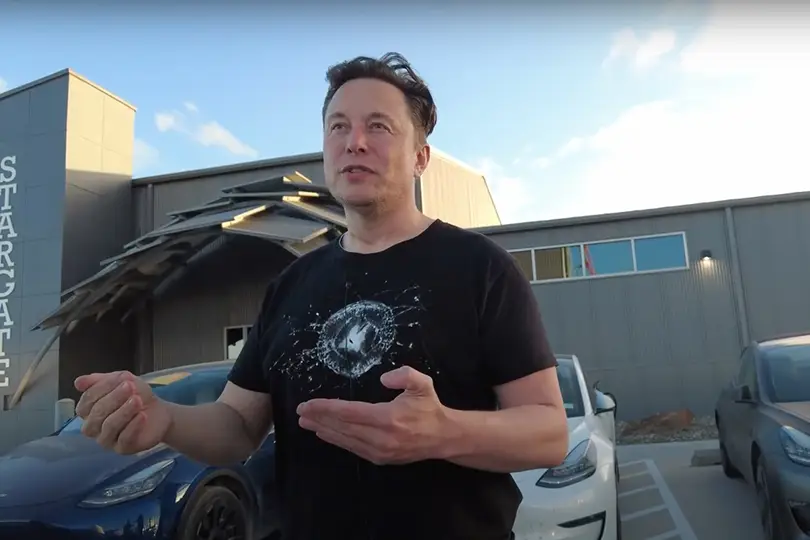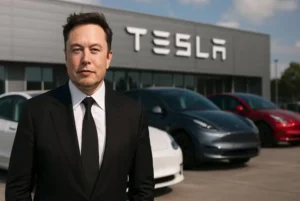The world is once again talking about Elon Musk — and this time, it’s not because of another viral thread on X, a bold statement about Mars colonization, or yet another startup launch. This week, Musk officially became the first person in history whose personal fortune has surpassed $500 billion. Half a trillion dollars. More than the GDP of entire nations — from Ireland to the Czech Republic.

This financial milestone is already being described as a turning point that will be studied in economics textbooks. But the main question being debated across Silicon Valley, Los Angeles, and the rest of California is this: how did he do it — and what happens next?
Why It Matters
This isn’t just another ranking of the world’s richest people. It’s a signal of how dramatically the global economy has shifted: capital now flows to where the technologies of the future are being built. Musk is no longer just an entrepreneur — he is a living technology empire. From electric vehicles to orbital launches, from artificial intelligence to autonomous mobility, his companies define entire industries. And the number — $500 billion — sends a message to global markets: the era of industrial capital has been replaced by the era of technological wealth concentration.
How Musk Reached $500 Billion: 5 Key Drivers of Growth
1. Explosive Tesla Momentum
Tesla remains the foundation of Musk’s fortune. What started as a risky automotive startup has transformed into the world’s dominant electric vehicle manufacturer. According to recent quarterly reports, Tesla’s market capitalization has accelerated again due to strong global deliveries, new model rollouts, and expansion into India and the Middle East.
But it’s no longer just about cars. Investors now see Tesla primarily as an AI and robotics company. Its self-driving technology and Tesla AI systems position the company as a future leader in autonomous transportation. That shift in perception has been a major trigger for Tesla’s renewed stock surge — and for Musk’s record-breaking wealth.
2. SpaceX — The Most Valuable Private Company in the World
SpaceX is currently valued at more than $250 billion — and continues to attract investor demand. The company dominates the global market for private space launches and remains a key NASA partner. But the real revolution is Starlink.
Starlink, a satellite-based internet project, is more than just a business. It is a global infrastructure platform that can deliver internet connectivity to remote regions, reshape military communications, support aviation and maritime navigation, and even connect financial systems. Analysts believe Starlink could become Musk’s first trillion-dollar venture.
3. X (Twitter) — A Bet on Media Transformation
Musk was heavily criticized for his acquisition of Twitter, its rebranding to X, and its radical business overhaul. But Musk has been clear about his long-term goal: to transform X into an “everything app” — a social platform combined with payments, e-commerce, and real-time media. According to recent data, X has reportedly shifted back to positive cash flow, surprising many earlier critics.
4. Artificial Intelligence: xAI and Grok
While Google and OpenAI battle over cloud AI supremacy, Musk built xAI — a company that aims to “understand the true nature of the universe.” xAI’s flagship product, Grok, has become one of the fastest-growing generative AI services, integrated directly into the X platform. Investors see xAI as a strategic AI alternative tied closely to Musk’s growing tech ecosystem.
5. Valuation of Musk’s Ownership Stakes
The latest assessments by financial analysts and investment banks reevaluated Musk’s equity stakes across Tesla, SpaceX, and xAI. These updated private-market valuations are what pushed Musk’s net worth past $500 billion — a historic figure that no other entrepreneur has reached.

Musk Is No Longer Just a Person — He Is an Economic Force
Musk moves global markets in real time. His posts can shift stock prices, his product announcements can trigger sector-wide sell-offs or rallies, and his companies shape the direction of entire industries. Love him or hate him — Musk is a living economic engine.
The Musk Effect on California: Jobs, Innovation, Economics
California has a complicated relationship with Musk. There have been public conflicts, political disputes, and high-profile business relocations. Yet one fact is impossible to deny: Musk remains essential to California’s tech economy.
SpaceX headquarters is still located in Hawthorne, Tesla’s Fremont factory remains the largest automotive plant on the West Coast, and both Starlink and xAI continue to hire aggressively throughout the state.
Analysts estimate that Musk’s companies indirectly support over 120,000 jobs in California through supply chains, manufacturing partners, and R&D hubs. Despite moving some operations to Texas, Musk still invests in California talent, innovation centers, and engineering programs.
The Controversy: Why Musk Is Criticized
Musk’s rise to $500 billion has not been without backlash. He is one of the most polarizing figures of our time. Critics accuse him of aggressive business tactics, mass layoffs, press intimidation, and excessive reliance on U.S. government contracts.
Common accusations include:
- SEC investigations over market-moving tweets
- Lawsuits over alleged toxic workplace environments at Tesla and X
- Concerns over excessive power concentrated in one person
- Antitrust questions surrounding Starlink and SpaceX dominance
Despite this criticism, Musk continues to push forward, often thriving on controversy rather than avoiding it.
What $500 Billion Really Means for the Future of Technology
Half a trillion dollars is not just a personal milestone. It’s a reflection of something larger: the market is betting on technology — and betting big. It believes humanity will travel to space more frequently than overseas vacations. It believes electricity will replace gasoline. It believes AI will become part of everyday life. And it believes global internet access is a universal right.
Musk’s fortune is simply a byproduct of a larger shift: the rise of visionary economics — where wealth flows to those who build the future.
Impact on Society and Real People
Musk’s growing fortune is not just a billionaire number — it reflects industries transforming in real time.
New Jobs and Technology Growth
Tesla reshaped the automotive industry faster than legacy automakers expected. SpaceX created an entirely new space economy. Starlink is connecting remote regions. xAI is intensifying global AI competition, accelerating product development worldwide.
Automation — Benefit or Threat?
Some worry about jobs being replaced by AI, autonomous vehicles, and robotics. Tesla’s Autopilot raises questions about the future of drivers. Starlink challenges traditional telecom jobs. AI threatens to automate white-collar professions. But experts agree: the industrial revolution of our time has already begun — and success belongs to those who adapt.

Musk and Global Power
In today’s geopolitical environment, Musk is no longer just a billionaire — he is a private geopolitical power. While China builds its own EV and space programs, while the European Union regulates big tech, the United States increasingly relies on private innovation — especially from Musk.
Musk as a Private Tech Superpower
- SpaceX launches a majority of U.S. satellites.
- Starlink keeps communication running in conflict zones and disasters.
- Tesla supports critical energy and transportation infrastructure.
- xAI strengthens U.S. capabilities in artificial intelligence.
This raises an unprecedented question: Can a single individual hold more technological power than entire nations?
What’s Next: Expert Forecasts
Morgan Stanley analysts say Musk’s fortune could reach $1 trillion within 5 years. Growth may be driven by:
- Worldwide Starlink expansion and enterprise services
- Mass adoption of autonomous driving
- Commercialization of SpaceX’s Starship
- xAI entering global AI markets
But risk remains: regulation is tightening, competition is escalating, and Musk’s companies burn enormous capital to grow. One major setback could slow everything.
*****
Elon Musk is a figure impossible to ignore. Admired by some, criticized by others, he has already reshaped multiple industries. And now, he has crossed a threshold no human ever has before: a $500 billion net worth. Whether this is a triumph, a warning, or simply the beginning of a new era — is something history will decide. But one thing is certain:

















